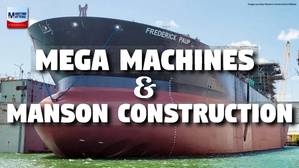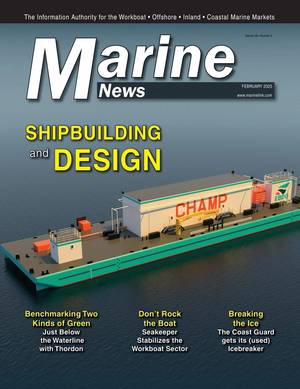Richard Hallet Meredith Robinson
ASTRIKING feature of the resurgence of the American merchant marine has been the " part played by trained American naval architects and marine engineers, not only in the purely technical work of the creation of our merchant fleet, but in the broader field of organization and executive direction.
No member of that profession is more widely known than Richard Hallett Meredith Robinson, whose professional career before the war had al-ready won him a high reputation, and who has since enhanced it by his success as organizer and chief executive of one of the largest new American shipbuilding and operating organizations.
Richard Hallett Meredith Robinson was born on April 2, 1875, at Ravenna, Ohio, the son of George Foreman and Mary A. (Gillio) Robinson. His family, Scotch-Irish in origin, has been American for many generations.
He graduated from Western Reserve Academy in 1892, entered the United States Naval Academy as a midshipman the same year, and was graduated with first honors in his class in 1896, being sent to the University of Glasgow, Scotland, for a post-graduate course in naval architecture and engineering. In 1898 he was commissioned Assistant Naval Constructor in the United States Navy, and ordered to duty at Cramp's, Philadelphia.
In 1902 he was ordered to the New York Navy 1 ard to supervise the construction of the famous battleship "Connecticut." Upon her successful completion, in 1905, Mr. Robinson, now a naval constructor with the rank of Lieutenant-Comman-der, was appointed assistant to the Chief Con-structor, in charge of the design and construction of all new ships. He held this post through the great era of naval expansion, notable for the appearance of the celebrated "all-big-gun" type of battleship. It is not too much to say that ships of this type throughout the world still bear the impress of Mr. Robinson's ideas of design.
In 1913 he resigned from the Navy to become managing director of the Lake Torpedo Boat Company, which has built many of the largest and most successful American submarines. More than one of Mr. Robinson's submarines saw active service in the war zone in the past two years. He still holds this position, although now largely in an advisory capacity.
In 1917 Mr. Robinson was elected president of the Merchant Shipbuilding Corporation, which about the same time took over control of the fa-mous Chester Shipbuilding Company, Limited, the oldest steel shipyard in America. This company has since been merged into the Merchant Shipbuilding Corporation. At its yard was originated the plan of fabricating ships by wholesale production, the parts being manufactured to pattern in inland mills and assembled at the shipyard, which played so great a part in the building of America's war emergency fleet. A paper written by Mr. Robinson for the Society of Naval Architects and Marine Engineers, in 1917, records the history of this accomplishment.
The Merchant Shipbuilding Corporation, as agent of the Emergency Fleet Corporation, also built and organized the great ship-fabricating plant at Bristol, Pa., where it is building forty steel merchant steamers of 9,000 tons each. A considerable number of these vessels are already in service and have made excellent records, forming with the similar ships built at Chester a distinctive and notable unit in the Government's great merchant fleet.
In addition to directing the work of these two great shipyards, Mr. Robinson is president of the Independent Steamship Corporation, which has organized a service of American steamship lines from New York to many ports of the Mediterranean and Near and Far East, and is already one of the most prominent of the new American shipping organizations.
Mr. Robinson is a member of the Council of the Society of Naval Architects and Marine Engineers, of the University and Engineers' Clubs of New York, the Rockaway Hunt Club, of New York, the Markham Club, of Philadelphia, and of the Army and Navy Club of Washington, D. C. He is also a member of the Military Order of the Loyal Legion, of the Sons of the American Revolution, and the Society of Foreign Wars. He married, on January 2, 1899, Rosalind Wood Smith, of Pittsburgh, Pa.




